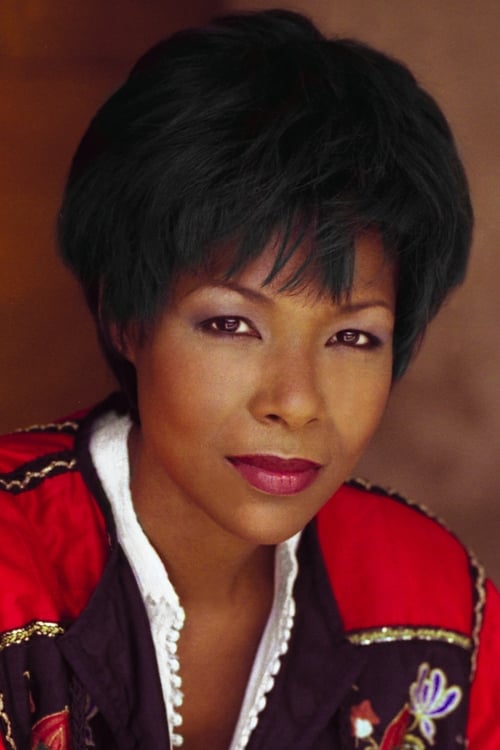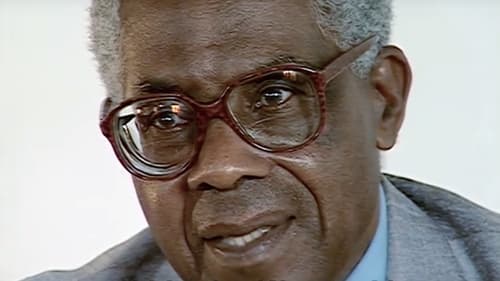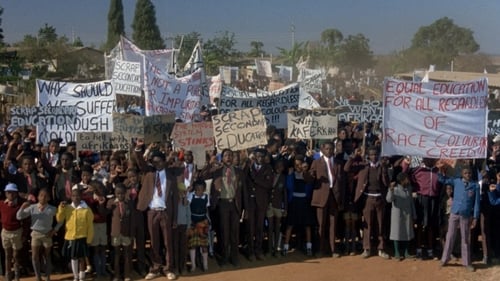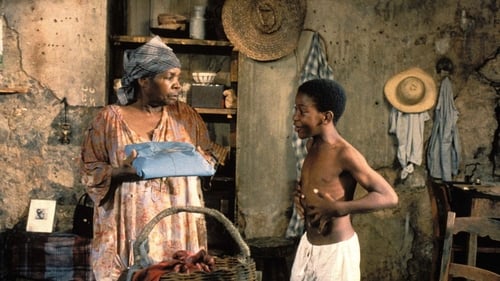
Euzhan Palcy
出生 : 1958-01-13, Martinique, French West Indies
略歴
Born January 13, 1958, in Martinique, French West Indies, Euzhan Palcy is a leader for black people, especially black women, in cinema. She is a screenwriter, producer and director. After studying the likes of Billy Wilder and Orson Welles and receiving a few degrees, including one from Louis Lumière College, she directed her first feature, Sugar Cane Alley (1983), in Paris for less than a million dollars. The film is about an impoverished black family making sacrifices for a young boy on a plantation in Martinique during the 1930s. It won numerous awards internationally, among them the César Award and the Venice Film Festival Silver Lion. Palcy's second feature, A Dry White Season (1989), explored the politics of South African apartheid, beckoning actor Marlon Brando to end his nine-year retirement to portray lawyer Ian McKenzie in it. With A Dry White Season, Palcy became the first black woman director produced by a major Hollywood studio. The film was banned in South Africa for a period of time. Brando's direction by Palcy earned him his final Academy Award nomination, for Best Supporting Actor. This made Palcy the first director who is black to direct an actor to such an honor. Palcy has continued to produce and make films all the way into the 2010s.

Self
Using rare footage and exclusive interviews with filmmakers from all over the globe, "Reel Herstory" corrects the historic notion that women behind the scenes in motion pictures held peripheral careers compared with their male counterparts.

Director
The forgotten history of "dissidents", the men and women of Martinique and Guadeloupe who left their islands between 1940 and 1943. The film features interviews with those in the resistance who tell their stories with passion, humility and humor.

Writer
The forgotten history of "dissidents", the men and women of Martinique and Guadeloupe who left their islands between 1940 and 1943. The film features interviews with those in the resistance who tell their stories with passion, humility and humor.

Self
Explores the careers of twenty black women working as film directors.

Director
Lawyers must defend a prisoner accused of murdering two of his inmates during the Attica prison riots in 1971.

Co-Producer
The true story of Ruby Bridges, an African-American girl who, in 1960 at age 6, helped to integrate the all-white schools of New Orleans. Although she was the only black girl to come to the school she was sent to, (and since all the white mothers pulled their children out of class, she was the only one there, period), and though she faced a crowd of angry white citizens every day, she emerged unscathed, physically or emotionally. Encouraged by her teacher, a white woman from the North named Barbara Henry, and her mother, Lucille, and with her own quiet strength, she eventually broke down a century-old barrier forever, a pivotal moment in the civil-rights movement

Director
The true story of Ruby Bridges, an African-American girl who, in 1960 at age 6, helped to integrate the all-white schools of New Orleans. Although she was the only black girl to come to the school she was sent to, (and since all the white mothers pulled their children out of class, she was the only one there, period), and though she faced a crowd of angry white citizens every day, she emerged unscathed, physically or emotionally. Encouraged by her teacher, a white woman from the North named Barbara Henry, and her mother, Lucille, and with her own quiet strength, she eventually broke down a century-old barrier forever, a pivotal moment in the civil-rights movement

Writer
A three-part study that introduces audiences to the celebrated Martinican author Aimé Césaire, who coined the term "négritude" and launched the movement called the "Great Black Cry".

Director
A three-part study that introduces audiences to the celebrated Martinican author Aimé Césaire, who coined the term "négritude" and launched the movement called the "Great Black Cry".

Self
A documentary overview and ideological critique of the South African film industry and cinema's historical relationship with apartheid.

Director
A UNICEF-sponsored six-film anthology depicting childhood horrors around the world. "Hassane" - a malnourished child in Niger needs help from the doctors, but village traditions prohibit it. "Liouba" - a child escapes to the forest after a beating by his alcoholic mother, but the games he plays in the forest mirror his troubles at home. "Boy" - a child faces discrimination as the only white student at his school. "Carmelo" - in Bogota a child living on the streets fights to survive. "Oca" - when his twelve year old brother dies free-diving in the Philippines, seven year old Oca must take his place on the job. "L'enfance de l'art" - children living and playing in a war zone are touched by violence.

Producer
The ghost of a music teacher pushes a young mechanic to start a career in music.

Writer
The ghost of a music teacher pushes a young mechanic to start a career in music.

Director
The ghost of a music teacher pushes a young mechanic to start a career in music.

Director
黒人庭師の息子が警察で謎の死を遂げたことをきっかけに、白人教師が政府や警察の腐敗した現状に立ち向かう。南アフリカ共和国で起こった殺人事件を描き、アパルトヘイトの現状を鋭く描き出してみせた衝撃サスペンス。

Self
Documentary about women in the film industry. Numerous notable actresses and female directors share their thoughts.

Writer
Martinique, in the early 1930s. Young José and his grandmother live in a small village. Nearly everyone works cutting cane and barely earning a living. The overseer can fine a worker for the smallest infraction. The way to advance is to do well in school. José studies hard and succeeds in an exam allowing him to attend school in the capital. With only a partial scholarship, the tuition is very costly. José and his grandmother move to Fort-de-France to make José's studies easier...

Director
Martinique, in the early 1930s. Young José and his grandmother live in a small village. Nearly everyone works cutting cane and barely earning a living. The overseer can fine a worker for the smallest infraction. The way to advance is to do well in school. José studies hard and succeeds in an exam allowing him to attend school in the capital. With only a partial scholarship, the tuition is very costly. José and his grandmother move to Fort-de-France to make José's studies easier...

Director
In a small fishing village in the West Indies, the children believe they see, in a strange cabin located on the way to the school, a devil.

Story
Her first picture, La Messagère (The Messenger, 1975), made by Palcy before she left for Paris, allowed people from Martinique to see themselves for the first time on television as complex characters.

Editor
Her first picture, La Messagère (The Messenger, 1975), made by Palcy before she left for Paris, allowed people from Martinique to see themselves for the first time on television as complex characters.

Director
Her first picture, La Messagère (The Messenger, 1975), made by Palcy before she left for Paris, allowed people from Martinique to see themselves for the first time on television as complex characters.

Writer
Her first picture, La Messagère (The Messenger, 1975), made by Palcy before she left for Paris, allowed people from Martinique to see themselves for the first time on television as complex characters.

The Producer and the Director must function like two hands of the same heart.

This documentary premiered at the Kennedy Center in Washington, DC. Explore the challenging world of the screenwriter with renowned industry writers.





